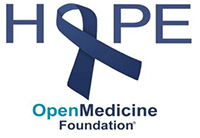Resources
Researcher Resources
Explore resources for ME/CFS Researchers
mapMECFS
Dynamic, searchable interface of a comprehensive data set of experimental results from studies focused on ME/CFS. Registered users can quickly search research results across biological disciplines, upload their results to the site, and integrate their data with other publicly available results.
searchMECFS
Interactive online search tool to identify and request biospecimens and clinical data for ME/CFS research.
UK ME/CFS Biobank
The UK ME/CFS Biobank contains over 30,000 blood sample aliquots and data from more than 600 donors, including individuals with mild to severe ME/CFS, multiple sclerosis, and healthy controls. Researchers can apply for free access to samples by submitting a brief research proposal. Details on available samples and data, as well as the application process, are available on the website.
Posted on August 1, 2025
FDA Voice of the Patient | Chronic Fatigue Syndome and Myalgic Encephalomyelitis
On April 25, 2013, FDA held a public meeting to hear perspectives from patients with chronic fatigue syndrome (CFS) and myalgic encephalomyelitis (ME) about their disease, its impact on their daily life, and currently available therapies.
About Myalgic Encephalomyelitis/Chronic Fatigue Syndrome
Trans-NIH ME/CFS Working Group resource on ME/CFS.
Common Data Elements
The National Institute of Neurological Disorders and Stroke (NINDS) and other Federal agencies and international organizations have the common mission of developing data standards for clinical research. The first set of Common Data Elements (CDEs) for Myalgic Encephalomyelitis/Chronic Fatigue Syndrome (ME/CFS) was developed in 2017.
Scientific Research Contacts for Technical Assistance
Investigators interested in doing research on ME/CFS and submitting grant applications to NIH are strongly encouraged to consult with the Scientific/Research Contacts in the area of science for which they are planning to develop an ME/CFS application. For a listing of representatives from 23 NIH Institutes, Centers and Offices who are members of the Trans-NIH ME/CFS Working Group.
NIH Guide for Grants and Contracts
The official publication for NIH medical and behavioral research grant policies, guidelines, and funding opportunities.
NIH Office of Extramural Research
Comprehensive information about grants, funding opportunities and notices, forms and deadlines, and how to apply.
Center for Scientific Review
The Center for Scientific Review is the portal for NIH grant applications and review for scientific merit. Applicant resources offer assistance with planning, writing and submitting a successful research application.
NIH Electronic Research Administration
Systems at the Electronic Research Administration provide applicants, grantees and federal staff the tools necessary for electronic processing of grants.
Open Medicine Foundation
Open Medicine Foundation (OMF) supports and facilitates open collaborative research to find effective treatments and diagnostic markers for ME/CFS with the engagement of patients, clinicians and researchers.
Bateman Horne Center
The Bateman Horne Center is a non-profit organization that empowers patients, advances research, and improves access to care for those impacted by ME/CFS and fibromyalgia.
NeuroBioBank
The NIH NeuroBioBank catalyzes scientific discovery through the centralization of resources aimed at the collection and distribution of human post-mortem brain tissue. The networked brain and tissue repositories distribute thousands of samples per year to the research community studying neurological, developmental, and psychiatric disorders. Post-mortem biospecimens from individuals with ME/CFS are available at NeuroBioBank. For more information about obtaining biospecimens for research and for information for potential donors, go to:
Essentials of ME/CFS Diagnosis and Management
Consensus recommendations to diagnose and manage ME/CFS from the ME/CFS Clinician Coalition.
MECFSnet Webinar Series - NIH Introduction
NIH introduction for the MECFSnet webinar series. The webinar series highlights research from the NIH ME/CFS Collaborative Research Centers and the Data Management Coordinating Center.
MECFSnet Webinar Series - RTI International
This webinar describes RTI International's role as the Data Management Coordinating Center (DMCC) for the ME/CFS Research Network and how tools developed by the DMCC can advance ME/CFS research.
MECFSnet Webinar Series - Columbia University, Center for Solutions for ME/CFS
Dr. Ian Lipkin and colleagues at the NIH-funded Collaborative Research Center at Columbia University provide an update on their research progress.
MECFSnet Webinar Series - Cornell University, Center for Enervating NeuroImmune Disease
Dr. Maureen Hanson and colleagues at the NIH-funded Collaborative Research Center at Cornell University provide an update on their research.
MECFSnet Webinar Series - The Jackson Laboratory (JAX)
Dr. Derya Unutmaz and colleagues at the NIH-funded Collaborative Research Center at The Jackson Laboratory provide an update on their ME/CFS research.
MECFSnet Webinar Series - ICanCME
Dr. Alain Moreau, a member of the NIH ME/CFS Research Network, is joined by patient partner Sabrina Poirier to provide an update on ME/CFS research at ICanCME.
ME/CFS Research Priorities
The Community Advisory Committee for the NIH ME/CFS Research Network has authored a report on ME/CFS research priorities. This work was supported by US Public Health Service grant 5U54AI138370 and 5U24NS105535. The content does not represent the official views of the National Institute of Neurological Disorders and Stroke or the National Institutes of Health.
Guidelines for the Design of Clinical Studies in ME/CFS
The Community Advisory Committee for the NIH ME/CFS Research Network has authored guidelines for the design of clinical studies in ME/CFS. This work was supported by US Public Health Service grant 5U54AI138370 and 5U24NS105535. The content does not represent the official views of the National Institute of Neurological Disorders and Stroke or the National Institutes of Health.
Community Resources
Explore resources for the ME/CFS community

Solve ME/CFS Initiative
The Solve ME/CFS Initiative (SMCI) is a non-profit disease organization that works to accelerate the discovery of safe and effective treatments, strives for an aggressive expansion of funding for research that will lead to a cure and seeks to engage the entire ME/CFS community in research, advocacy, and patient support.

ME Action
#MEAction is a global, grassroots network for people with Myalgic Encephalomyelitis and Chronic Fatigue Syndrome.

Open Medicine Foundation
Open Medicine Foundation (OMF) supports and facilitates open collaborative research to find effective treatments and diagnostic markers for ME/CFS with the engagement of patients, clinicians and researchers.

Bateman Horne Center
The Bateman Horne Center is a non-profit organization that empowers patients, advances research, and improves access to care for those impacted by ME/CFS and fibromyalgia.

#NotJustFatigue
#NotJustFatigue is a nonprofit organization that speaks the truth about ME/CFS through creative content—film, photography, storytelling, and interactive experiences. This site features a ten-part, documentary style, short form video series on ME/CFS. Each video tackles a particularly challenging aspect of living with ME/CFS.
What is ME/CFS?
Myalgic Encephalomyelitis (ME), also referred to as Chronic Fatigue Syndrome (CFS), is a multi-system disease that causes dysfunction of the neurological, immune, endocrine, and energy metabolism systems.

